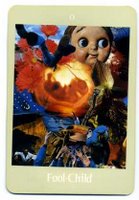Magic Wand
I am working on these wands – magic wands – made from natural materials and embellished with colored thread, beads and other things. At first I only thought of them as “the touch of… (crab, or rabbit, grass or stone – fill in the blank) and that they were about acknowledging the power of the non- human world. Then I realized they were much more.
I collect materials on my walks in various places. Materials come from Australia, California, Vermont and they all get mixed together. I take pleasure in the collecting and the putting together of sticks, stones, feathers, bones, seeds, color, and ornamentation.
 Wand #2 - The Touch of Crab
Wand #2 - The Touch of Crab
I recognize the need for integrating the places where I dwell. The wands are hybrids like myself.They do not draw their source from one place. They are post colonial wands. In addition the materials and construction have complex symbolic relationships to each other. For example, it seems important the base of the wands has some sort of rock to ground the energy and the tips have lighter materials connecting with flight or life.
The magic begins in the gathering but can not fully come into the world until the wands are activated. I will devise a fire ritual to bring the power of magic alive. I believe that in this ritual I (we) enact and embody the mythical domain.
And, although I am accustomed to creating fire rituals for myself I wonder if it isn’t time for me to share this powerful art making activity with other and that a fire ritual with my community would bring the energy into the community in a positive and transformative way. It’s the making of the art that brings me new knowledge not the actual object.


